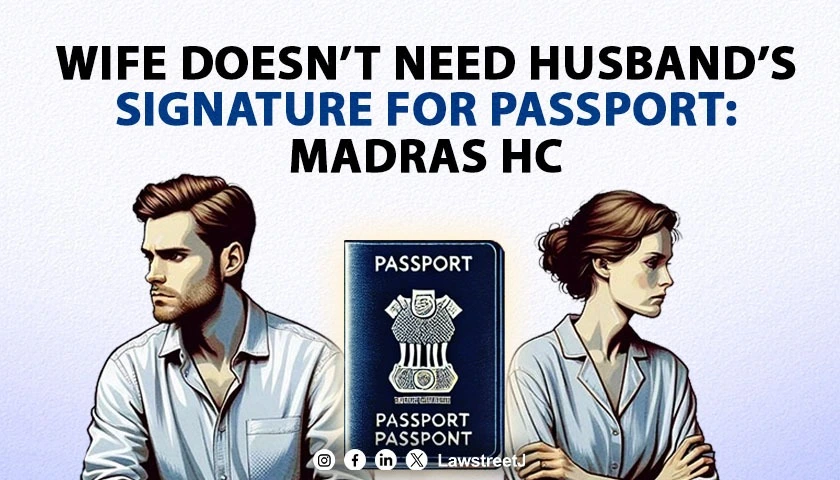Chennai: The Madras High Court has delivered a significant judgment affirming women’s independence in passport applications, emphasizing that married women do not require their husband’s permission or signature to obtain a passport.
Justice N. Anand Venkatesh made crucial observations on the practice of requiring spousal consent for passport applications and its implications for women’s rights.
The court addressed a writ petition filed by J. Revathy against the Government of India and the Regional Passport Office. It noted that the petitioner, who married Mohana Krishnan in 2023 and had a child in 2024, applied for a passport on 24.04.2025 but was told she must obtain her husband’s signature in Form-J for processing.
Addressing the specific concerns regarding the passport office’s requirements, the court observed:
“This insistence by the 2nd respondent reflects the societal mindset of treating married women as if they are chattel belonging to the husband. It is quite shocking that the passport office insists on the husband’s permission and signature in a particular form.”
The court highlighted the legal and constitutional issues surrounding such practices, stating:
“The petitioner, after marrying the abovementioned Mohanakrishnan, does not lose her individuality. A wife can always apply for a passport without the permission or signature of her husband in any form.”
In a specific directive, the court ordered:
“There shall be a direction to the 2nd respondent to process the application submitted by the petitioner and issue a passport in her name, subject to fulfillment of other requirements. This process shall be completed within four weeks from the date of receipt of a copy of this order.”
The court emphasized that such practices are contrary to the goals of women’s emancipation, stating:
“The practice of insisting on the husband’s permission to apply for a passport does not augur well for a society moving towards women’s emancipation. This practice is nothing short of male supremacism.”
The case arose amid matrimonial disputes between the petitioner and her husband, with HMOP No. 289 of 2025 seeking dissolution of marriage pending before the Sub Court, Alandur. The passport office had cited this pending dispute as an additional reason for requiring the husband’s consent.
The court has now directed the Regional Passport Office to process such applications independently, reinforcing the principle that marriage does not diminish a woman’s individual rights.
Case Title: J. Revathy vs. The Government of India & Ors.




![TN Medical Council declares change of gender identity of LGBTQIA+ as misconduct [Read Notification]](/secure/uploads/2022/12/lj_5268_5cebb05a-97fb-40fb-8045-25cdf8f4207a.jpg)
![Madras High Court Directs Tamil Nadu Government to Ensure Quota for Transgenders in Local Body Elections [Read Order]](/secure/uploads/2023/08/lj_2507_7a03d113-08b1-4670-b6fb-9058aee481d0.jpg)
![Anti Corruption sleuths acted like "puppets in The Muppet Show", HC notice to ex TN CM in disproportionate assets case [Read Order]](/secure/uploads/2023/09/lj_8675_7b37fc02-1b2d-4f4a-9816-3df20545b37e.jpg)




